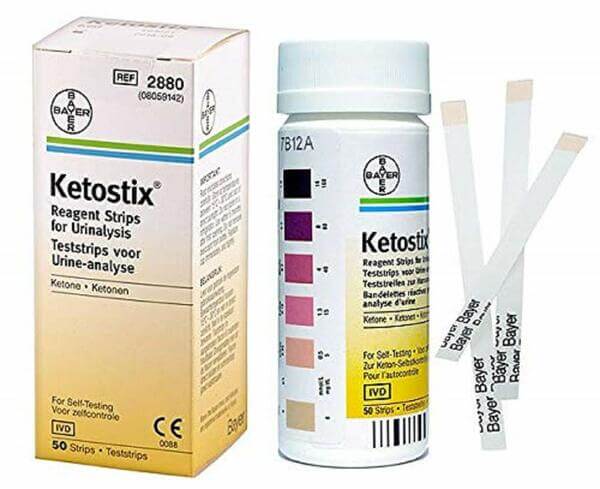Ketostix reagent test strips are small, plastic strips used to detect the presence of ketones in the urine. They are commonly used by people on low-carbohydrate diets, such as the ketogenic diet, and people with diabetes to monitor their ketone levels. Ketones are byproducts of fat breakdown in the body and are used as an energy source when glucose levels are low. High levels of ketones in the urine can be an indicator of ketosis, a state of accelerated fat burning and weight loss.
How Do Ketostix Test Strips Work?
Ketostix reagent test strips are able to detect the presence of ketones in the urine by changing color in the presence of acetoacetate. Acetoacetate is a type of ketone that is produced in the body during fat breakdown. The strips are typically dipped in a sample of urine, and the color change indicates the level of ketones present. The strips are available in different ranges, such as 1-8 mg/dL, 1-14 mg/dL, and 0-20 mg/dL. The higher the number on the strip, the more ketones are in the urine.
Benefits of Using Ketostix Reagent Test Strips
Ketostix are a convenient and affordable way to monitor ketone levels in the urine. They are easy to use and can provide quick results, making them a great tool for people on a low-carbohydrate diet or people with diabetes.
Some of the benefits of using Ketostix include:
- Convenient: Ketostix are easy to store and use, making them ideal for people on the go.
- Accurate: Ketostix are designed to be accurate and reliable, providing consistent results.
- Affordable: Ketostix are relatively inexpensive, making them a cost-effective option for monitoring ketone levels.
- Quick Results: Ketostix provide quick results, making them a great tool for tracking progress.
Limitations of Ketostix
Although Ketostix are a useful tool for monitoring ketone levels, they have some limitations.
Some of the drawbacks of using Ketostix include:
- Inaccurate Readings: Ketostix can sometimes give inaccurate readings due to factors such as dehydration or a high concentration of ketones in the urine.
- False Positive: Ketostix can sometimes give a false positive, meaning that they show a positive result even when there are no ketones present in the urine.
- Limited Range: Ketostix are only available in a limited range, making it difficult to accurately measure ketone levels in the higher range.
- Inconclusive Results: Ketostix can sometimes provide inconclusive results, meaning that the color change is not enough to accurately measure ketone levels.
Ketostix test strips are a convenient and affordable way to monitor ketone levels in the urine. They are easy to use and provide quick results, making them a great tool for people on a low-carbohydrate diet or people with diabetes. However, they have some limitations such as inaccurate readings, false positives, limited range, and inconclusive results. Therefore, it's important to use Ketostix in conjunction with other methods of monitoring ketone levels, such as blood tests.









